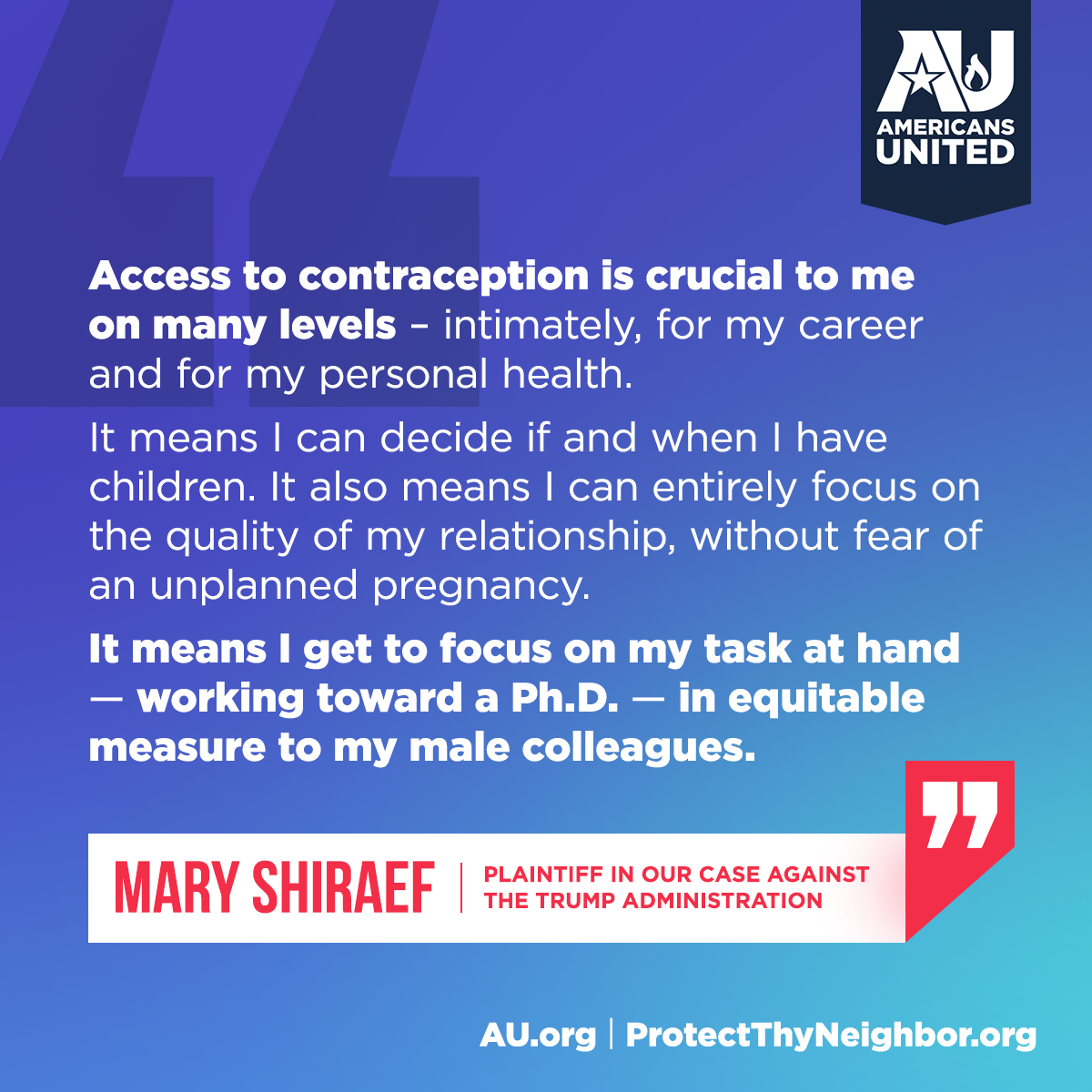The Religious Freedom Restoration Act was designed to relieve burdens on religious exercise—especially for members of minority religions who don’t always get a fair shake. But over the last several years, both the federal RFRA and its state-law counterparts have been exploited to deny healthcare to women and discriminate against LGBTQ citizens.
Attempts to use RFRA to strip others of their rights have been fueled by the 2014 Supreme Court decision in Burwell v. Hobby Lobby Stores, Inc. There, the Court, in a 5-4 ruling, allowed for-profit corporations to invoke RFRA in order to withhold contraceptive coverage from their employees. The result in the case is troubling enough, but the case could have even more far reaching repercussions: the Court interpreted RFRA so broadly that others may try to use the law to undermine access to healthcare, justify discrimination, and threaten public safety.
Religiously affiliated nonprofit organizations, including large institutions such as the University of Notre Dame, now argue that they have the right to block their students and staff from receiving contraceptive coverage from third parties—refusing to fill out a simple form, which would exempt them from providing contraceptive coverage, because they want to prevent the government from arranging for affected women to receive contraceptive coverage from other sources. Although most lower courts rejected these attempts to misuse RFRA, the 8-member Supreme Court, in Zubik v. Price, sent the cases back to the lower courts for reconsideration in the hopes that the objectors will accept a different accommodation. Unfortunately, no resolution has been reached. The religiously affiliated non-profits wanted to get rid of the contraception insurance mandate or get an exemption like houses of worship. The Obama administration refused to give in to these demands and protected access to birth control for employees at these organizations. In October 2017, the Trump administration issued regulations that created a sweeping religious exemption—any corporation or university can use religion to deny their employees and students coverage for birth control.
Religious objectors are also attempting to use RFRA to discriminate against LGBTQ people. Some wedding vendors have argued that state RFRAs allow them to deny service to same-sex couples or LGBTQ-rights groups. The infamous Kentucky clerk Kim Davis argued that RFRA allowed her to refuse to provide marriage licenses to same-sex couples and to prevent other clerk’s office employees from doing so. And religious right groups are now attempting to use RFRA to deny basic civil-rights protections to transgender students—going so far as to argue that RFRA requires schools to force transgender girls to use the boys bathrooms and locker rooms (and vice/versa). Most courts—so far—have rejected these attempts to use RFRA to discriminate; but as more governments protect LGBTQ people from discrimination, more entities will try to use RFRA to override nondiscrimination laws.
Our lawyers are fighting to prevent RFRA from being misused in these ways. We represented a Notre Dame student who has intervened to oppose the university’s attempt to use RFRA to deny her contraceptive coverage; we filed a brief in the Supreme Court contraception case on behalf of 240 students, faculty, and staff at religiously affiliated universities; and we have filed numerous briefs opposing businesses and government officials from discriminating in the name of religion, including an amicus brief on behalf of 76 faith leaders and 14 religious freedom organizations in support of a transgender woman who was fired because she did not conform to her boss’s religious beliefs about gender identity. We will continue to aggressively oppose attempts to misuse RFRAs to discriminate and deny people their rights.
On October 31, 2017, Americans United and National Women's Law Center filed Shiraef v. Hargan, a lawsuit challenging the Trump administration’s contraception coverage rules. In it, we fought on behalf of women who were at risk of being denied birth control coverage, including three students from the University of Notre Dame and Alicia Baker, an employee at an Indiana church whose insurance provider objected to some forms of birth control. Barely a week after we filed the case, Notre Dame reversed course on its plan to take advantage of the Trump administration rules, announcing instead that employees and students will continue to have contraceptive coverage. Alicia Baker accepted a new job and no longer has to worry about her previous insurance provider’s religious objections. These women have access to birth control and thus, they don’t need to continue their lawsuit.
The fight is not over, however. In February 2018, Notre Dame announced that it would terminate insurance coverage of certain forms of contraception, following an undisclosed settlement it claims to have reached with the government in a separate lawsuit. AU and NWLC sent a demand letter to the university and filed a Freedom of Information Act seeking information about the settlement and the school’s contraceptive coverage for its employees and students.
But countless other women will be harmed by the new rules. That’s why eight states and our allies including the ACLU are also in court challenging the rule. Federal judges in Pennsylvania and California have blocked the birth control rules.
AU continued to fight the regulations outside of court. In December 2017, we filed public comments to tell the Trump Administration that these new rules were unfair, unconstitutional, and harmful. And we joined our allies to deliver over 500,000 comments from people across the country—including Americans United supporters—who also think that attacking women’s access to healthcare is wrong.
We will continue to fight to make sure all women have affordable, seamless access to contraception. Women’s health and equality and religious freedom are at stake.





